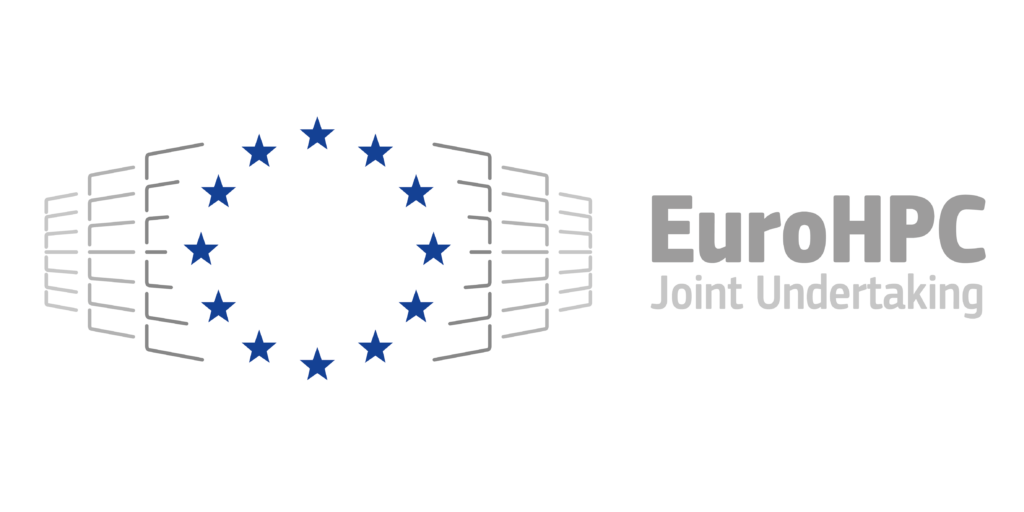Parallel Computing conference (ParCo2019) was held in Prague, Czech Republic, from 10-13 September 2019.
EPI Chairman of the Board, Jean-Marc Denis, gave a keynote titled “European Processor Initiative: the European vision for exascale ages and beyond”
In Pisa, the EPI team participated at the RoundTable at ApplePies, 7th International Workshop Applications in Electronics Pervading Industry, Environment & Society. The Round Table confirmed that the EuroHPC Joint Undertaking, in full alignment with the objective of deploying in Europe a world-class supercomputing infrastructure and a competitive innovation ecosystem in supercomputing technologies, applications and skills by coordinating the efforts of its member states and share resources, has assigned one of the 3 Precursor to Exascale system to CINECA. Building on that, the Round Table’s participants presented the contribution of Italian-based institutions and enterprises towards the maximization of the results achieved through exascale-class systems both from the scientific and research point of view as well as from the industrial point of view. The current status of R&D in Italy specifically for the development of components for exascale-class systems was addressed, including the role of Italian institutions and enterprises in the European Processor Initiative (EPI) consortium, and which synergies among the key players could create a native Italian ecosystem fully aligned within the EuroHPC JU and EPI initiatives for enabling exascale-class systems to support scientific leadership and industrial competitiveness.
HPC User Forum took place in Argonne National Laboratory, Chicago, Illinois, September 9-11, 2019. On September 10, in the afternoon session chaired by Paul Muzio, EPI’s Chairman of the Board, Jean-Marc Denis, addressed the attendees and explained the European Processor Initiative.
The academic participants presented their research lines and their previous engagement and contributions to EU programs, covering a wide spectrum of research fields and technological implementation. Andrea Bartolini (UniBO) presented the goals of the EPI, the members of the consortium and the roadmap for the processor, the accelerator and the automotive components, and highlighted the role of University of Bologna in the development of key components of the EPI project. Fabrizio Magugliani (E4 computer Engineering) presented the role of E4 in the development of key components of the EPI projects such as the PCIe daughter board hosting the EPI processor as Software Development Vehicle. The presentation opened a healthy discussion about how the community of Italian researchers could leverage the EPI project bringing the results of their research and therefore adding value to the project.
The First IEEE Seasonal School on Circuits and Systems for IoT aimed to offer a set of talks on key topics related to circuits and Systems for IoT in modern and upcoming technologies. This seasonal school is an initiative of the IEEE CASS SiG on IoT. The SiG on IoT decided to start a series of seasonal schools on IoT, each year in a different location around the world. It was also decided to do the first edition in Porto Alegre, Brazil.
EPI’s Sergio Saponara attended and gave a lecture titled “Internet of Things for Automotive Industry: New Trends in Circuits and Systems”, touching also upon EPI in his talk.
At the Flash Memory Summit, EPI’s Kalray hosted a booth and presented EPI flyers.
At the Pierburg Rheinmetall plant in Livorno, Italy, prof. Sergio Saponara from UNIPI addressed an industrial audience with a presentation titled “Integration of mechanical and electronic engineering: trends and challenges in education, research and technology transfer”, touching upon EPI as well.
The 2019 edition of the Summer School Enabling Technologies for Industrial Internet of Things (ET-I2oT 2019) was organized to offer 6 ECTS (48 hours of front lessons) in the fields of electronics, electromagnetics and ICT for Internet of Things (IoT), targeting an audience of Bachelor (last year), Master and PhD students, early stage researchers and practitioners from Academia or Industry. As a part of the lesson plan, Prof. Sergio Saponara gave a lesson entitled “Embedded High Performance Computing: the challenge of the H2020 European Processor Initiative”.
The ACACES Summer School was organized by the HiPEAC Network in collaboration with the TETRAMAX Innovation Action and Eurolab4HPC. ACACES 2019 is the fifteenth edition of the Summer School.
It was a one-week summer school for computer architects and tool builders working in the field of high-performance computer architecture and compilation for computing systems. The school aimed at the dissemination of advanced scientific knowledge and the promotion of international contacts among scientists from academia and industry. At the opening, EPI’s Mauro Olivieri held a keynote titled “The strategic touch between supercomputers and embedded systems in the roadmap towards exascale: the European Processor Initiative”.
The program of the conference is tailored to reflect the wide spectrum of topics and research interest shared among the organizing entities, prepared for a wide scientific public. EPI’s partners Kalray, represented by Benoît Dupont de Dinechin, held a presentation called “Kalray’s MPPA® Manycore Processor: At the Heart of Intelligent Systems”, where he also touched upon how MPPA fits into EPI.

